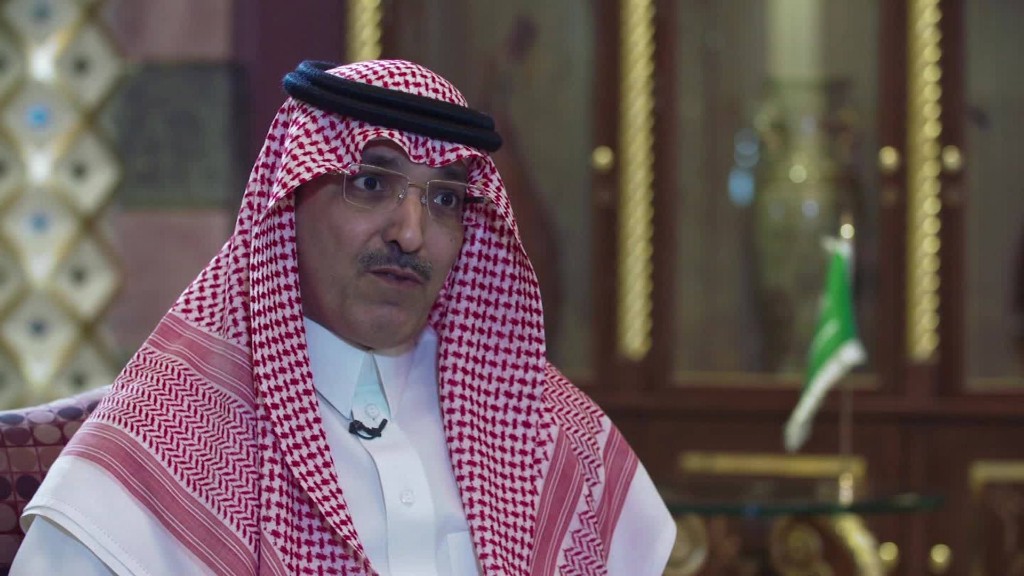
Saudi Arabia is borrowing more money.
The kingdom said Thursday it had raised $12.5 billion from international investors, the third time it has tapped global bond markets in less than a year.
Last October it raised $17.5 billion in conventional bonds, its first international sale ever, and in April it issued a $9 billion Islamic bond.
The latest debt will be repaid in tranches: $3 billion in 5 years, $5 billion in 10 years and $4.5 billion in 30 years.
The crash in world oil prices in 2014 and 2015 has transformed Saudi Arabia's finances, blowing a huge hole in the kingdom's budget. It reported deficits of $100 billion in 2015 and $71 billion in 2016.
Related: Saudi chauffeurs may be out of work now women can drive
Saudi Arabia is aiming to balance its budget by 2020 as part of a much bigger overhaul of the economy -- known as Vision 2030 -- to reduce its dependence on oil.
It has already made progress by cutting subsidies and introducing new taxes. It is also tackling major social reform. On Wednesday, the kingdom said it would lift a ban on women driving next year.
"The [new bond] is going to be utilized for budgetary purposes and to support planned infrastructure projects," said Mohammed Khnifer, a debt capital markets senior associate at the Islamic Development Bank Group.
"The closing day of issuance coincided with allowing women to drive, a move that was welcomed by investors as it signals the seriousness of the Saudi leadership toward the goals of 2030 vision."


